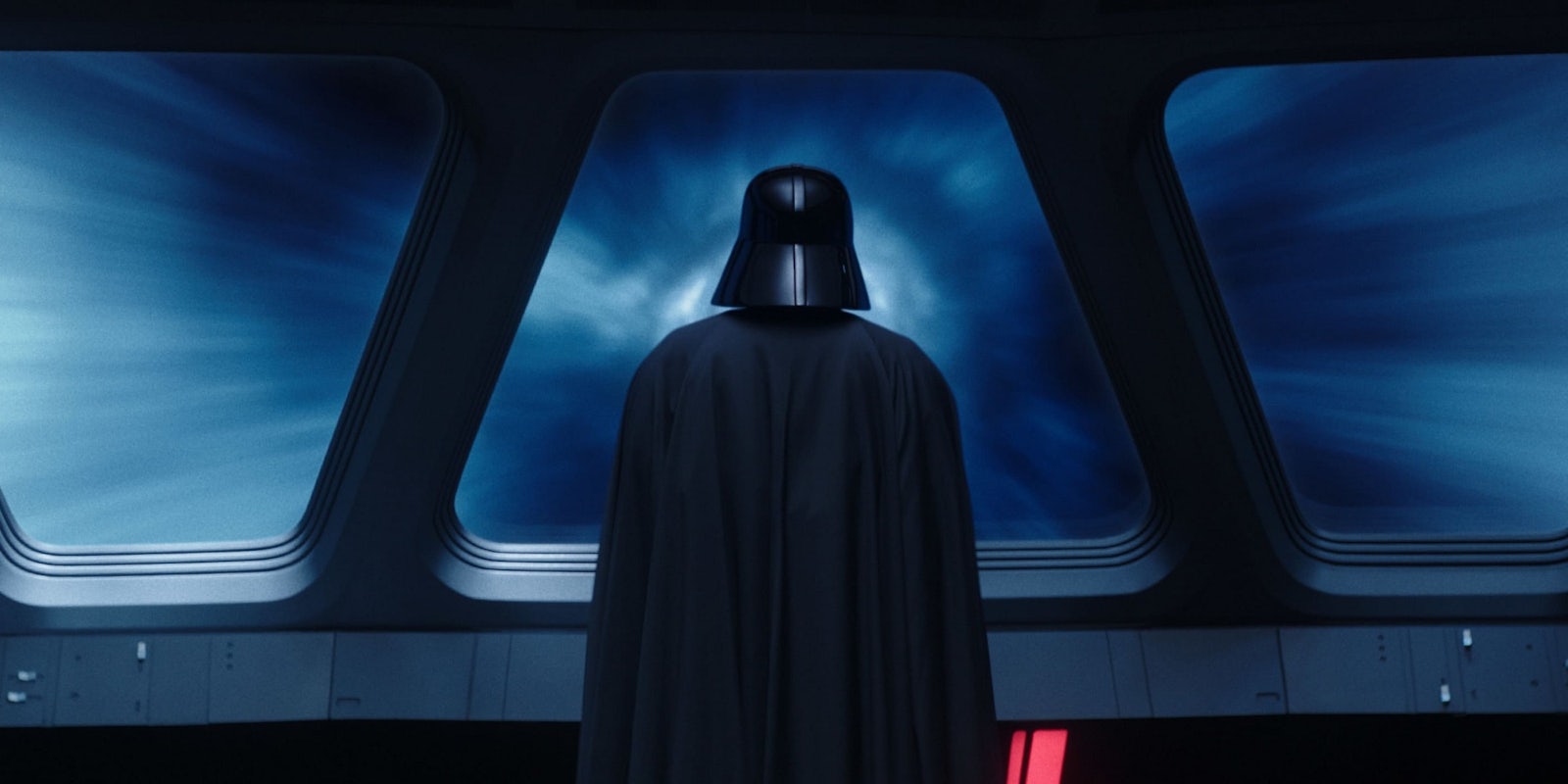This recap includes spoilers for Obi-Wan Kenobi episode 6.
Last week I highlighted Obi-Wan Kenobi‘s most puzzling problem: Too much Darth Vader, and not enough Anakin. This issue was hammered home in the finale, a heavily-padded conclusion that only had two real points of interest: Reva’s crisis of identity, and the couple of minutes where we see Anakin’s face beneath the mask.
With Vader closing in on his ship full of refugees, Obi-Wan chooses to leave and face his old apprentice alone. It’s less a gesture of self-sacrifice, and more about confronting his own feelings. Landing on a featureless planet (a specialty of Star Wars shows filmed on “the Volume“), Obi-Wan meets Vader in a lightsaber duel punctuated by generic fight dialogue: “Have you come to destroy me, Obi-Wan?” After years of despair, Obi-Wan has regained his old confidence, culminating in a quintessential show of Jedi strength: levitating some rocks.
All the great Star Wars duels thrive on a combination of visual and emotional impact: The passionate clashes between Rey and Kylo Ren, or the acrobatic Jedi techniques of The Phantom Menace. This Vader/Obi-Wan fight feels embarrassingly inert by comparison. Thanks to his overexposure in earlier episodes, Vader is neither as intimiditating nor as emotionally compelling as he should be. Things only heat up when Obi-Wan damages his helmet, exposing Anakin’s face and allowing Hayden Christensen’s voice to be heard. When Obi-Wan delivers a long-awaited apology, Vader replies, “Anakin’s gone. I am what remains.”
In a show full of people stating the obvious, here’s an obvious statement that actually lands. Obi-Wan can’t accept Anakin’s transformation until he sees it firsthand, giving him enough closure to walk away. The episode ends with him riding into the sunset with Qui-Gon’s ghost—but only after returning to Tatooine yet again, where Reva is hunting down Luke Skywalker.
Uncle Owen and Aunt Beru are no match for a trained Inquisitor. But when the moment comes, Reva can’t bring herself to kill the 10-year-old Luke. Seeing her childhood self in Luke’s face, she abandons her quest for revenge against Anakin, returning Luke to his adoptive parents. “Have I become him?” Reva demands, tears streaming down her face as she discards her red lightsaber. She did terrible things to get close to Anakin, and it all came to nothing. Now she must figure out a new path in life.
Obi-Wan Kenobi and Disney’s resistance to new ideas
After watching this scene, two points become clear: Reva has the most interesting arc in Obi-Wan Kenobi, and the show only functions thanks to strong performances from Moses Ingram and Ewan McGregor.
While it’s satisfying to see McGregor revisit this character, Obi-Wan Kenobi feels bizarrely conservative compared to the prequels. Sure, those movies were clunky, but they also introduced a ton of cool new concepts to the franchise. Every memorable idea from the prequels (both good and bad!) happened because George Lucas was unafraid to get weird. But in 2022, Disney still appears to be cowed by the backlash against The Last Jedi. Only safe, recycled material is permitted.
Aside from the premise of a secret team-up between Obi-Wan and Leia, nothing in this show deviates from our expectations. The new locations are dull. Nothing strange or unpredictable occurs. None of the background characters are quirky enough to warrant special attention. This would be less of an issue for a two-hour thriller in the vein of Logan, but these flaws are much more visible in a six-episode miniseries.
Tellingly for Disney, the most effective element of Obi-Wan Kenobi may be the adorable interplay between Leia and her droid Lola; a relationship designed to sell toys. Meanwhile, when Vader and Obi-Wan finally get their big confrontation, the emotional impact originates within the memory and imagination of the audience. Not from the substance of what actually happens onscreen.


